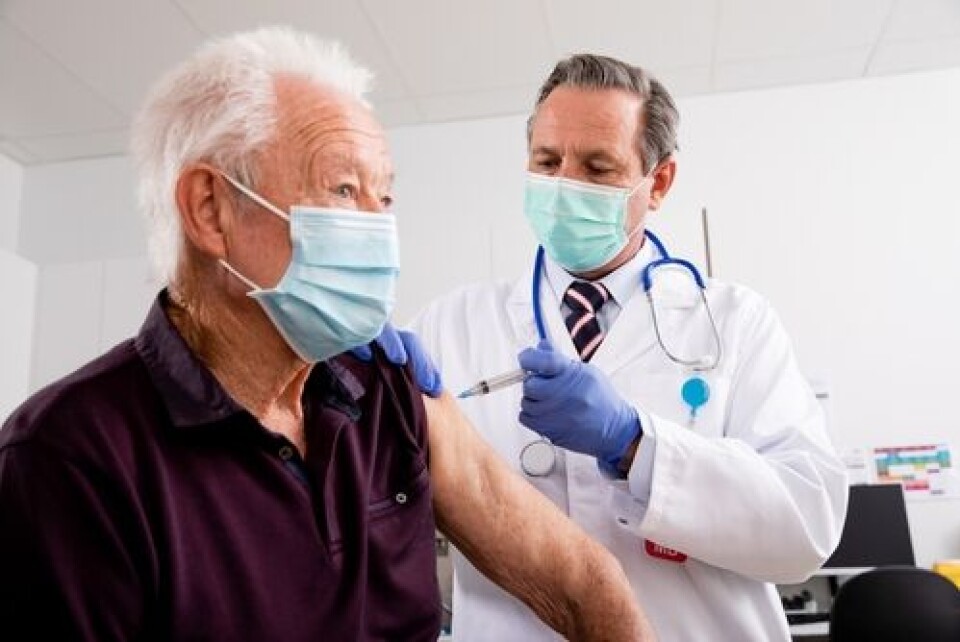-
How many Americans live in Paris - and where else are they choosing in France?
Over a quarter of all US nationals in France live in the capital city
-
Price rises for Netflix in France
The Standard (with ads) and Premium packages are increasing by €24 a year
-
Leclerc supermarkets to sell car fuel at cost price for Easter
The initiative will apply to diesel, petrol, and LPG
Autumn Covid booster recommended only for ‘at risk’ groups in France
The vaccination will be offered alongside the one for seasonal flu

France’s health authority has set out its stance on Covid-19 boosters for 2023 and is containing its recommendations to an Autumn booster vaccination only for people considered at risk of developing a severe form of the virus.
The recommendations will be in parallel and similar to the ones of the seasonal flu jab.
The new recommendation for ‘living with Covid-19’ was outlined by the Haute Autorité de santé (HAS) and confirmed in a statement on February 24 as it published new vaccine recommendations.
This is the first time HAS, an independent authority whose findings are not binding but which are generally followed by the government, no longer recommends boosters for the general population.
#Communiqué | La HAS publie sa recommandation de stratégie vaccinale contre le #Covid-19 pour 2023 👉https://t.co/Y2cEPlxBjH pic.twitter.com/UcvWlZu9qM
— Haute Autorité de santé (@HAS_sante) February 24, 2023
Relaxation of policy is a first
The relaxation of policy is because the Omicron variant is considered a much less severe variety of Covid.
Whilst the HAS no longer recommends more vaccination against Covid-19 among the general public, it does stress the “importance of allowing any person who requests a booster dose to be allowed to have one and also that this should be issued free of charge".
Elisabeth Bouvet, president of the technical commission of vaccinations of the HAS, said: "Currently, only the sub-variants of the Omicron family are circulating with limited health consequences. So as long as there is low-level circulation of a low-virulent virus, the vaccine strategy does not have to target the general population.
"The virus that is circulating today in France is no longer really dangerous for the general population and we will have to live with it in one way or another, so we will not take any particular measure, except for people who have particular risks," added Dr Bouvet.
Read also: Warmer weather brings early pollen allergy alerts for most of France
Who is recommended to get a booster?
The autumn vaccination campaign will target people considered at grave risk from the Omicron variant.
These are:
- People aged 65 and over
- People with comorbidities and people around or in regular contact with them, including professionals in the health and medico-social sectors (any age).
- Pregnant women
The HAS also recommends a spring booster dose for people aged 80 and over, and people who are immunocompromised and thus at a very high risk of the disease.
A recent study conducted in France by EPI-PHARE (a scientific interest group formed by the National Agency for the Safety of Medicines and Health Products and the National Health Insurance Fund) claims booster jabs cut the risk of hospitalisation by 82% for the first two months after the last injection and by 52% for the nine months following the vaccine.
This new dose is recommended at least six months after the last dose or infection, regardless of the age of the person or the number of previous boosters.
In terms of choice of vaccine, the HAS recommends the use of bivalent mRNA vaccines adapted to Omicron, regardless of the vaccines previously administered.
Past infection better protection than vaccine
Other Covid research reveals that past infection protects at least as well as the vaccine and lasts for longer, offering hope that future waves of Covid will result in low levels of hospitalisation.
The results of one of the largest studies on managing the epidemic were released on February 16.
"Even if an infection gives protection that decreases over time, the level of protection (...) seems to be as long-lasting or even longer than that conferred by vaccination," reports the medical journal, The Lancet.
The comparison is based on Pfizer BioNTech and Moderna messenger RNA vaccines, which are among the most effective vaccines against Covid and spearhead vaccination campaigns in many Western countries.
The paper published in The Lancet is unprecedented in scope: it compiles some 60 pre-existing studies, with a hindsight of several years that notably takes into account the emergence in late 2021 of the Omicron variant.
Hybrid immunity
The results do not suggest that vaccination is unnecessary if you have already been infected. They suggest that a “hybrid“ of vaccination and infection gives the best form of immunity as more and more individuals “are both vaccinated and sick at least once.”
"In the long term, most infections will occur in people who are well protected against severe forms of the disease, either from a previous infection, from vaccination, or from both," said researchers in The Lancet. These results therefore give hope that future waves of Covid-19 will result in low levels of hospitalisation, they conclude.
Read also
New rules for Covid-19 in France: Testing, contact cases, isolation
Burglaries, violence, sex crimes in France increase after Covid dip
























